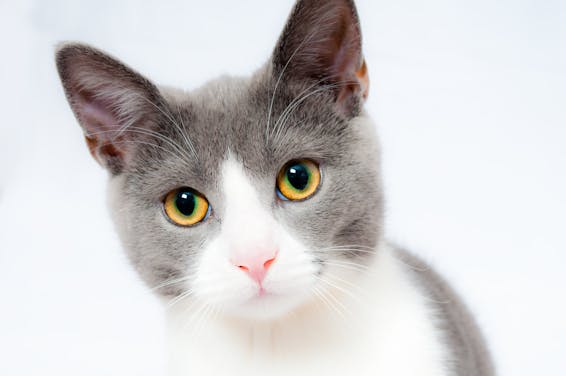As a cat owner, you’ve likely wondered whether your feline friend can share some of the food or drinks you enjoy. One common question is: Can cats drink Ribena blackcurrant? While Ribena may be a popular fruit drink for humans, it’s essential to know if it’s safe for your cat. Spoiler alert: Ribena and similar fruit drinks can be harmful to cats, and here’s why.
🍇 What’s in Ribena Blackcurrant?
Ribena is a sweet, fruity drink made from blackcurrants. It contains ingredients like sugar, flavorings, preservatives, and sometimes artificial sweeteners. While these ingredients make Ribena tasty for humans, they pose risks to cats due to their unique dietary needs and sensitivities.
Blackcurrants themselves are not toxic to cats, but the other additives in Ribena can cause serious health issues. Even small sips of Ribena can lead to complications, so it’s best to avoid giving it to your cat altogether.
🚨 Why Is Ribena Dangerous for Cats?
Cats have very different digestive systems compared to humans. Ribena and other sugary drinks are not formulated with your pet’s health in mind. Here are the main reasons Ribena is unsafe for cats:
- High sugar content – Cats don’t need sugar in their diet, and consuming it can lead to obesity, diabetes, and dental problems.
- Artificial sweeteners – Some Ribena varieties may contain xylitol, a sweetener that is extremely toxic to cats, even in small amounts.
- Preservatives and additives – These ingredients can upset your cat’s stomach and may cause vomiting or diarrhea.
- Acidity – The acidity in fruit drinks like Ribena can irritate your cat’s digestive system and lead to discomfort.
Even though Ribena may seem harmless, these hidden dangers make it a risky choice for your feline companion.
🐾 Symptoms to Watch For If Your Cat Drinks Ribena
If your cat accidentally ingests Ribena, you may notice symptoms of an upset stomach or, in severe cases, poisoning. Watch out for the following signs:
- Vomiting
- Diarrhea
- Lethargy or weakness
- Loss of appetite
- Increased thirst or urination
- Drooling or foaming at the mouth
- Seizures (if xylitol is present)
These symptoms can appear quickly after ingestion, so it’s crucial to act promptly if you suspect your cat has consumed Ribena.
🩺 What to Do If Your Cat Drinks Ribena
If your cat has accidentally consumed Ribena, here’s what you should do:
- Remove access to the drink immediately to prevent further consumption.
- Check the Ribena label for harmful ingredients like xylitol.
- Monitor your cat for symptoms of an upset stomach or poisoning.
- Contact your vet or an emergency pet poison hotline for advice, especially if xylitol was consumed.
Your vet may recommend bringing your cat in for an examination or administering supportive care to manage symptoms. Prompt action can prevent more serious complications.
🐱 Are Any Drinks Safe for Cats?
While water is the safest and most essential drink for your cat, you might wonder if there are other options. Cats don’t require flavored beverages and are better off avoiding sugary or acidic drinks altogether. However, some alternatives include:
- Cat-safe broth – Unsalted chicken or fish broth can be a tasty treat for your cat.
- Special cat milk – Available in pet stores, this lactose-free milk is formulated for cats.
Always introduce new liquids cautiously and in small amounts, and consult your vet if you’re unsure about their safety.
💡 How to Keep Your Cat Hydrated
Proper hydration is crucial for your cat’s health, but Ribena and other sugary drinks are not the answer. Instead, focus on these tips to encourage your cat to drink more water:
- Provide fresh, clean water daily in multiple bowls around your home.
- Use a cat water fountain to make drinking more enticing.
- Incorporate wet food into your cat’s diet for added moisture.
- Place water bowls away from food and litter boxes, as cats prefer separation.
By promoting healthy hydration habits, you can ensure your cat stays happy and healthy without the risks associated with sugary drinks.
FAQs
Q: Can cats eat blackcurrants?
A: Blackcurrants themselves are not toxic to cats, but they are not recommended due to their acidity and sugar content.
Q: Is xylitol always present in Ribena?
A: Not all Ribena products contain xylitol, but it’s important to check the label, as even trace amounts can be dangerous for cats.
Q: What should I give my cat to drink instead?
A: Stick to fresh water or vet-approved alternatives like unsalted broth or cat-specific milk.
Q: My cat drank Ribena but seems fine. Should I still call the vet?
A: Yes, it’s always better to consult your vet, especially if you’re unsure of the drink’s ingredients.
Q: Can kittens have Ribena?
A: No, kittens are even more vulnerable to the harmful effects of sugary and acidic drinks like Ribena.
References
Book a $49 online vet consultation at https://www.dialavet.com for fast, expert advice.























